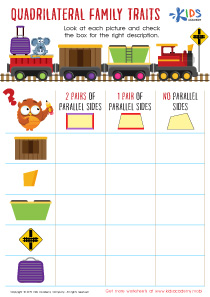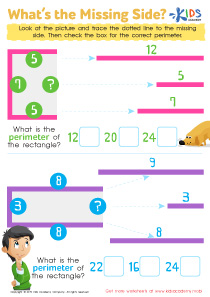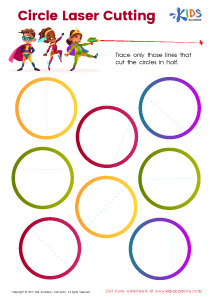Shape Recognition Normal Tracing Shapes Worksheets for Ages 4-5
6 filtered results
-
From - To
Discover our comprehensive "Shape Recognition Tracing Worksheets" designed specifically for children ages 4-5. These engaging activities help young learners identify, trace, and understand basic geometric shapes while enhancing fine motor skills and hand-eye coordination. Each worksheet is crafted to make learning fun and interactive, providing a solid foundation in early math development. With vibrant illustrations and clear instructions, kids will enjoy practicing shape recognition at their own pace. Perfect for parents and educators, our printable worksheets are an excellent resource for reinforcing key concepts at home or in the classroom. Start shaping young minds today!
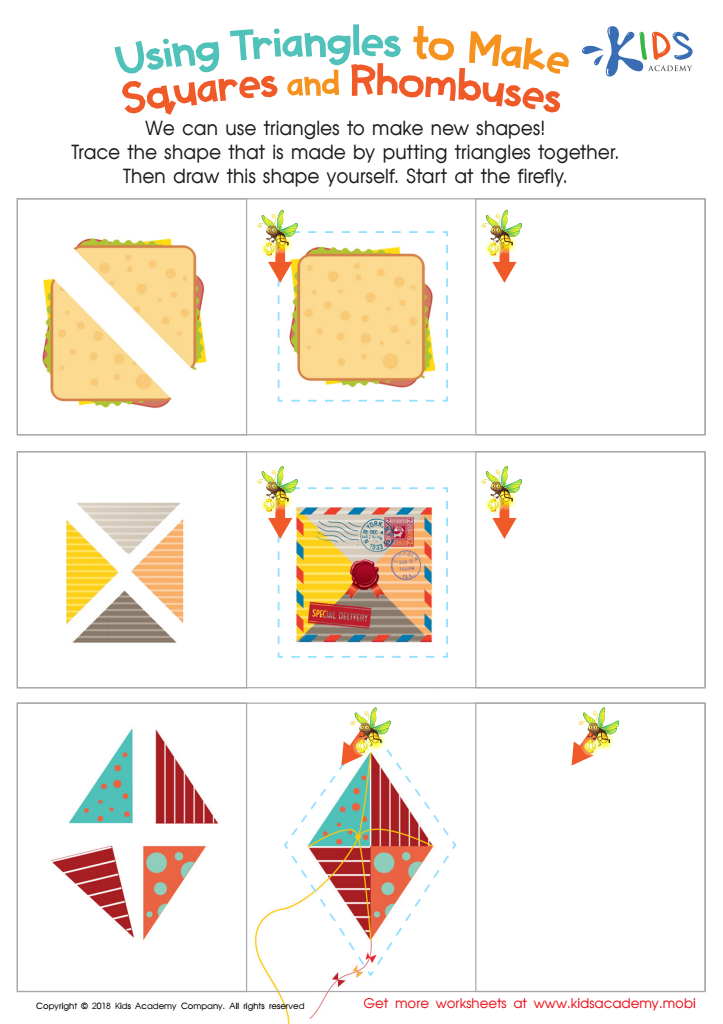

Using Triangles to Make Squares and Rhombuses Worksheet
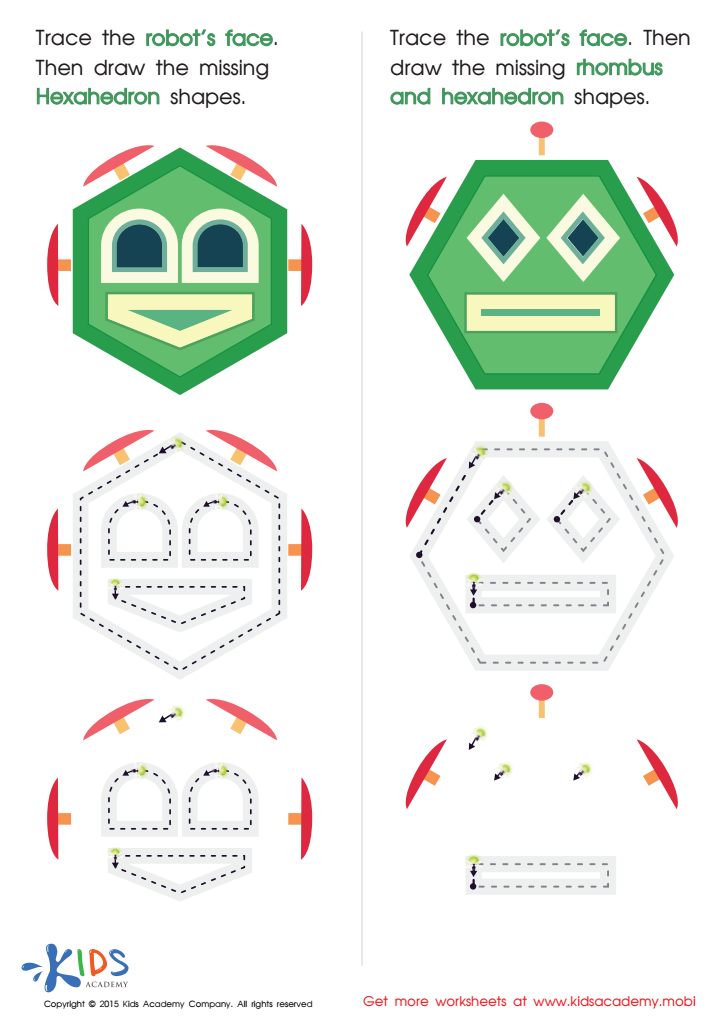

Practice Drawing Hexahedrons And a Rhombus Worksheet
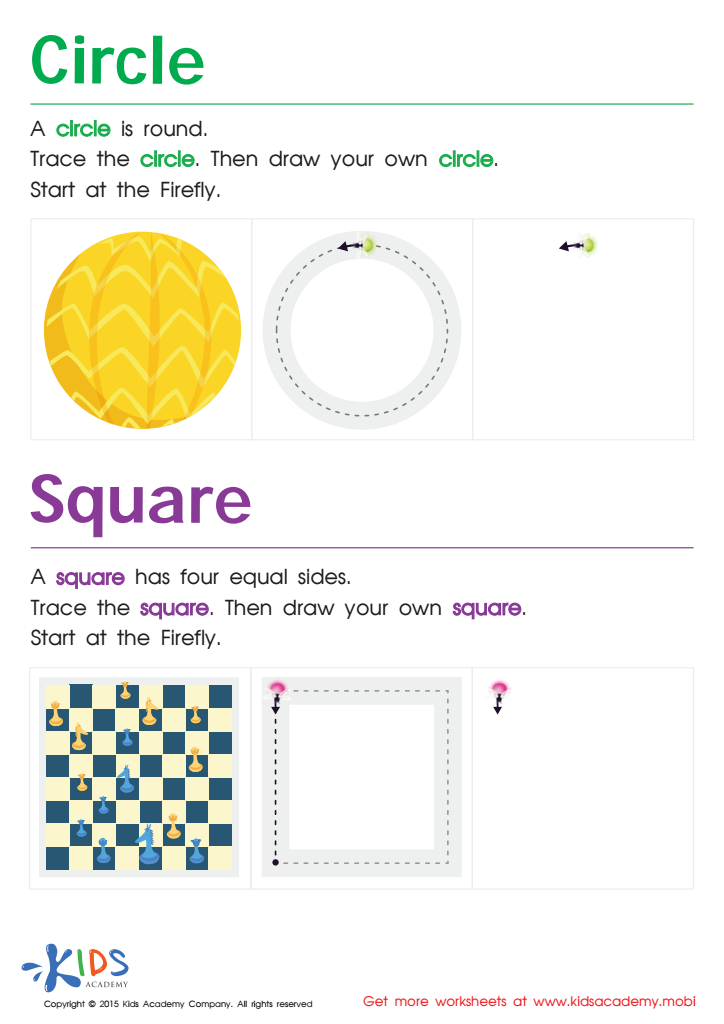

Trace And Draw a Circle And a Square Worksheet
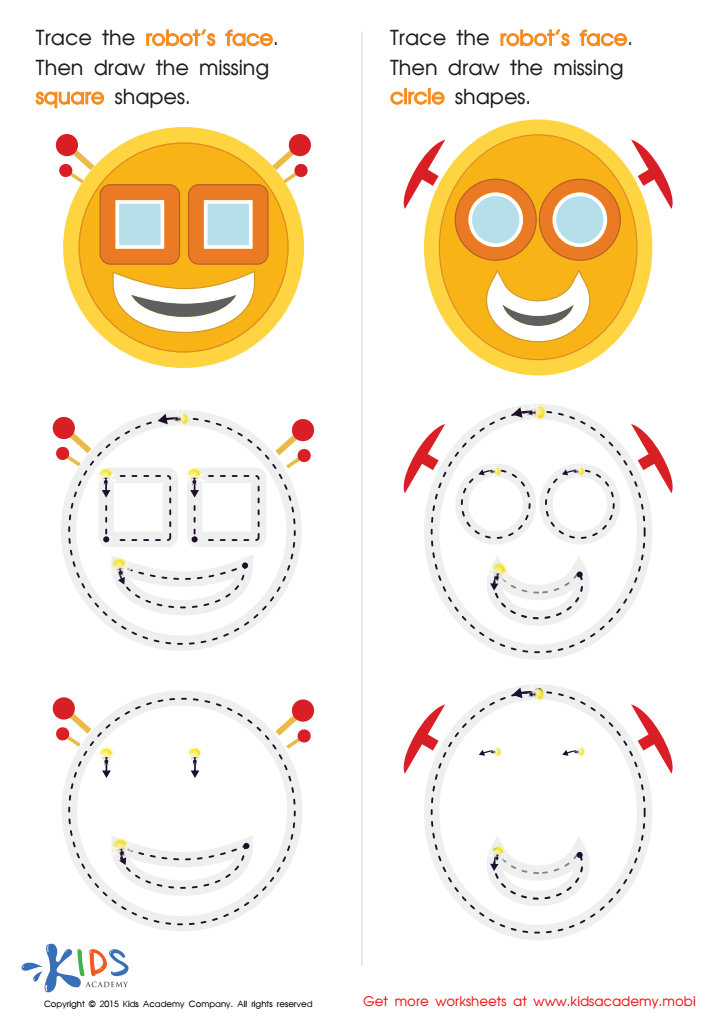

Practicing to Draw Circles And Squares Printable
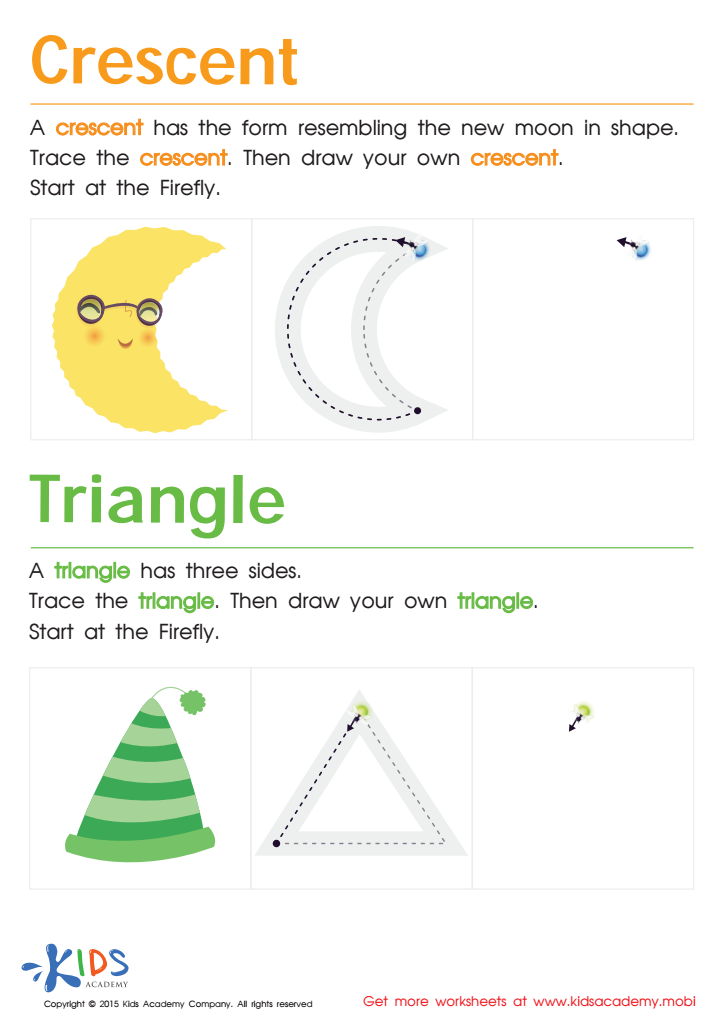

Learning to Draw Crescents And Triangles Worksheet
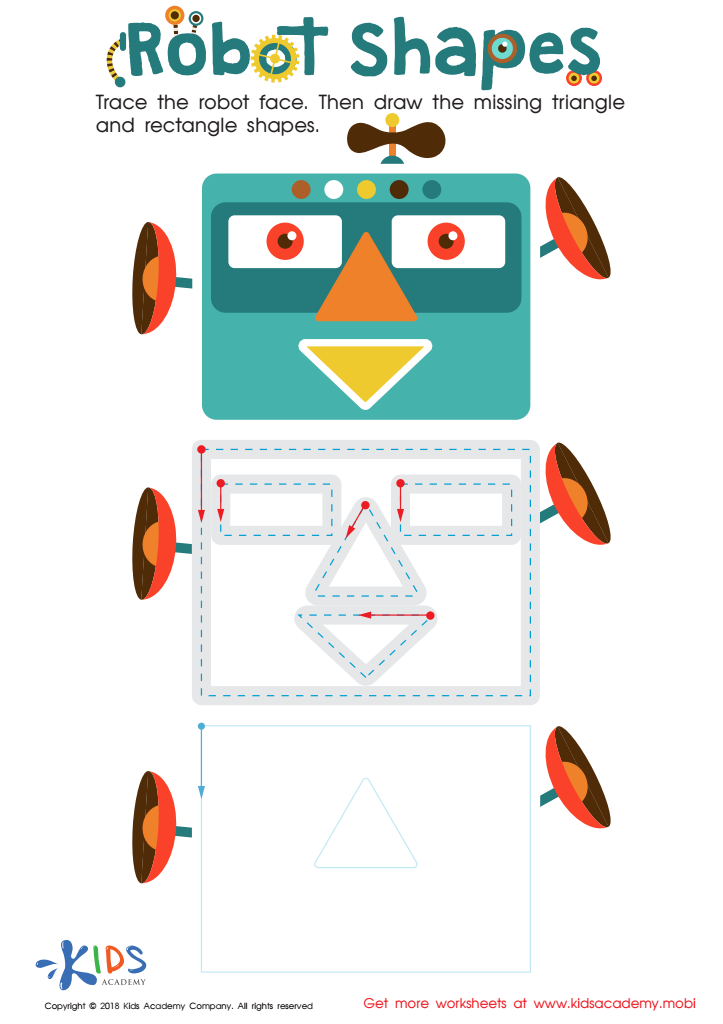

Robot Shapes Worksheet
Parents and teachers should care about shape recognition and normal tracing for children aged 4-5 because these activities play a crucial role in early childhood development. At this age, children are in a critical period for developing essential cognitive, motor, and perceptual skills. Recognizing shapes helps enhance their visual discrimination, which is foundational for reading and mathematics later on. Understanding different shapes also allows children to better understand and interpret the world around them, which fosters their cognitive development.
Tracing shapes, in particular, significantly contributes to fine motor skill development. It helps children gain better control over hand movements, improving their hand-eye coordination, which is vital for later tasks such as writing. When tracing, children practice precision and control, which builds their confidence and sets a positive foundation for more complex writing skills.
Moreover, shape recognition and tracing activities can improve spatial awareness and problem-solving skills. Identifying and working with shapes encourages children to notice relationships and patterns, helping to build early mathematical language and reasoning. These skills are not just academic but are crucial for everyday problem-solving and logical thinking.
By prioritizing these activities, parents and teachers help children develop a strong developmental foundation, preparing them for more advanced education while making learning fun and engaging.
 Assign to My Students
Assign to My Students









